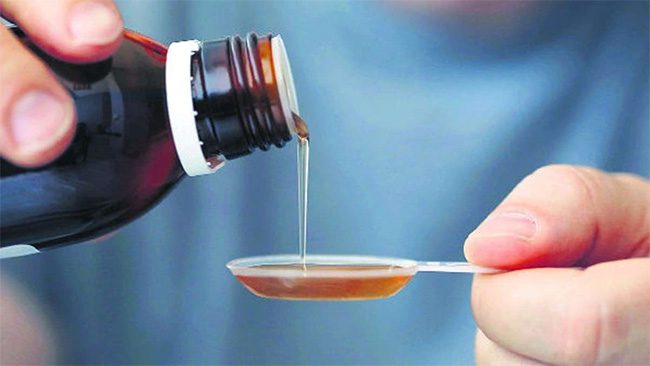The World Health Organization (WHO) has warned about four types of cough and cold syrups produced by Maiden Pharmaceuticals in India, suspected to be linked to the deaths of 66 children in Gambia.
WHO stated that these medications may have been distributed outside the West African nation, with the possibility of global prevalence being “likely.” Reports from Reuters and AFP confirm this concern.
WHO Director Tedros Adhanom Ghebreyesus told reporters that the four cough and cold syrups mentioned “are likely linked to cases of acute kidney injury and the 66 deaths in children.”

WHO warns about 4 cough syrups after the deaths of 66 children in Gambia. (Photo: PTI).
“The loss of these young lives is heartbreaking for the families,” Tedros said, adding that WHO is “investigating the company and regulatory authorities in India.”
According to the warning issued by WHO on October 5, the four products include: Promethazine Oral Solution, Kofexmalin Baby Cough Syrup, Makoff Baby Cough Syrup, and Magrip N Cold Syrup.
“So far, the manufacturer has not provided evidence ensuring the safety and quality of these products to WHO,” the warning stated. Laboratory analysis of product samples “confirmed that they contain an unacceptable amount of diethylene glycol and ethylene glycol as harmful substances.”
These substances are harmful to humans and can be fatal. Symptoms of poisoning from these substances “may include abdominal pain, vomiting, diarrhea, difficulty urinating, headache, altered mental state, and acute kidney injury, which can lead to death.”
WHO indicated that information received from the Central Drug Standard Control Organization of India suggests that the manufacturer only supplied the contaminated medicines to Gambia.
“However, it cannot be ruled out that these products were distributed through informal or unregulated markets to other countries in Africa,” WHO stated.
“Additionally, the manufacturer may have used the same contaminated raw materials in other products and distributed them domestically or exported them,” the organization further warned.
Tedros urged all countries to be cautious and work to “detect and remove these products to prevent further harm to patients.”
On October 6, the Gambian authorities began recalling syrups containing paracetamol and promethazine from rural households in several regions. The health agency also ordered a recall on September 23 of all medications containing paracetamol or promethazine.
An investigation by the Gambian Ministry of Health, initiated in July and ongoing, also suggested that E. coli bacteria could be the cause of the series of acute kidney injury cases.
Abubacarr Jagne, a nephrologist leading the investigation for the Ministry of Health, told AFP on October 5: “Preliminary results from the ongoing investigation suggest that paracetamol and promethazine syrup are likely responsible for these cases of acute kidney injury.”
Gambia experienced its worst flooding in years in July, causing water in the drainage system to overflow. “Since July 2022, there has been an increase in severe kidney disease cases with high mortality rates among children, mainly due to diarrhea,” the ministry stated in a press release in September.
E. coli bacteria were found in the feces of many children, but many children had also consumed paracetamol syrup.


















































